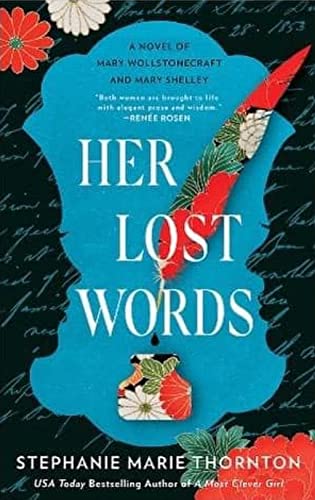 Her Lost Words: A Novel of Mary Wollstonecraft and Mary Shelley by Stephanie Marie Thornton
Her Lost Words: A Novel of Mary Wollstonecraft and Mary Shelley by Stephanie Marie Thornton Format: eARC
Source: supplied by publisher via Edelweiss
Formats available: paperback, ebook, audiobook
Genres: biography, historical fiction, women's fiction
Pages: 448
Published by Berkley Books on March 28, 2023
Purchasing Info: Author's Website, Publisher's Website, Amazon, Barnes & Noble, Kobo, Bookshop.org, Better World Books
Goodreads
From A Vindication of the Rights of Woman to Frankenstein, a tale of two literary legends--a mother and daughter--discovering each other and finding themselves along the way, from USA Today bestselling author Stephanie Marie Thornton.
1792. As a child, Mary Wollstonecraft longed to disappear during her father's violent rages. Instead, she transforms herself into the radical author of the landmark volume A Vindication of the Rights of Woman, in which she dares to propose that women are equal to men. From conservative England to the blood-drenched streets of revolutionary France, Mary refuses to bow to society's conventions and instead supports herself with her pen until an illicit love affair challenges her every belief about romance and marriage. When she gives birth to a daughter and is stricken with childbed fever, Mary fears it will be her many critics who recount her life's extraordinary odyssey...
1818. The daughter of infamous political philosopher Mary Wollstonecraft, passionate Mary Shelley learned to read by tracing the letters of her mother's tombstone. As a young woman, she desperately misses her mother's guidance, especially following her scandalous elopement with dashing poet Percy Bysshe Shelley. Mary struggles to balance an ever-complicated marriage with motherhood while nursing twin hopes that she might write something of her own one day and also discover the truth of her mother's unconventional life. Mary's journey will unlock her mother's secrets, all while leading to her own destiny as the groundbreaking author of Frankenstein.
A riveting and inspiring novel about a firebrand feminist, her visionary daughter, and the many ways their words transformed our world.
My Review:
As a young woman, Mary Wollstonecraft Godwin (the future Mary Shelley) must have felt as if she would always live in the shadow of her scandalous, reviled, radical mother, Mary Wollstonecraft, the author of the famous – or infamous – philosophical treatise, A Vindication of the Rights of Women.
After all, even when the younger Mary first met the love of her life, the poet Percy Bysshe Shelley, even he confessed to being a fan of her mother’s work.
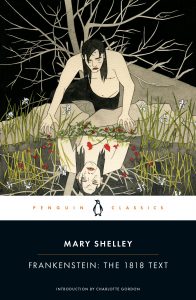 But the tides of history turn, and for more than a century after Mary Shelley’s death it was HER great work that captured the limelight – and much of the popular imagination – while her mother’s achievements were covered in the shadows cast by her daughter’s monster, the doctor who made him and the literary genre they started.
But the tides of history turn, and for more than a century after Mary Shelley’s death it was HER great work that captured the limelight – and much of the popular imagination – while her mother’s achievements were covered in the shadows cast by her daughter’s monster, the doctor who made him and the literary genre they started.
Mary Shelley and her Frankenstein gave birth to modern science fiction at the age of 19, an achievement for which she is celebrated every bit as much as both mother and daughter were reviled in their own times.
The story in Her Lost Words takes the lives of this pair of literary giants and tells them in alternating first-person chapters. So we read about the mother’s life from her not-early-enough escape from her abusive father’s house to her death alternating with her daughter’s life from learning to read using the letters of her mother’s tombstone to her return to England after the publication of Frankenstein, the birth of her own child and Shelley’s tragic early death as she navigates her own storied life.
Their stories are intertwined – but also entirely different. The older Mary was always in search of a life of the mind – even though women were supposed to be incapable of such a thing. The younger Mary expected to have such a life but devoted more of her passion to her relationships, particularly with Shelley, until her monster took over her literary ambitions.
One was thought, one was feeling. Each was a towering genius in their own way. Her Lost Words does its best to set them both in their times, showing their influence on each other and their respective legacies while doing its best to see them each outside the long shadow that the other cast.
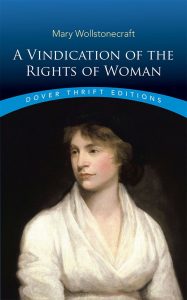 Escape Rating B: Someone needs to do a literary survey of just how many fictional and even non-fictional biographies of famous women in history begin with a dramatic scene of parental or spousal abuse. Not that I do not believe it’s true in the case of the older Mary, more that it should be telling in a profound way that it happened so damn frequently but somehow that message never seems to penetrate the male psyche. Which is a part of what made A Vindication of the Rights of Women such a radical document, not just in its day but still. Because we haven’t achieved all the rights she set out in the late 1700s even to this day.
Escape Rating B: Someone needs to do a literary survey of just how many fictional and even non-fictional biographies of famous women in history begin with a dramatic scene of parental or spousal abuse. Not that I do not believe it’s true in the case of the older Mary, more that it should be telling in a profound way that it happened so damn frequently but somehow that message never seems to penetrate the male psyche. Which is a part of what made A Vindication of the Rights of Women such a radical document, not just in its day but still. Because we haven’t achieved all the rights she set out in the late 1700s even to this day.
If behind every successful man there stands his mother-in-law, quite surprised – or more likely a supportive woman in one or many roles in his life, in historical fiction, at least, it does seem as if behind every successful woman stands a male authority figure, generally a spouse or parent, with his hand still raised to deliver yet another blow as she runs away as far and as fast as she can.
(I’ll climb down off my soapbox now but considering the general opprobrium both of the subjects of this dual fictional biography faced in their lifetimes, if there was ever a book to make that soapbox germane, this is it. I digress, but not as much as usual.)
I ended up with mixed feelings about Her Lost Words. I really enjoyed the history, and I liked the dueling dual portraits of these two incredible women. I think where it didn’t work quite well for me was in those first-person singular voices, because this story was told as women’s fiction, centering their personal lives as much as their professional lives, and dealing as much with their emotions as it did with their written thoughts and words.
First-person narratives can be excellent in drawing a reader into the mind of a character, but Mary Wollstonecraft and Mary Shelley weren’t fictional characters, they were real women who each left behind a considerable body of literary work. I was more interested in what they actually said and wrote and what they actually did than anything else. The book was very well done for what it was, but the presentation of historical figures as characters in women’s fiction didn’t quite work for this reader.
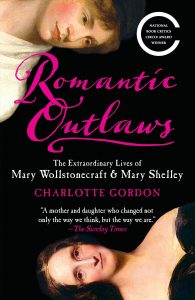 I wanted to be all in on this one and I just wasn’t. I’m still interested in Wollstonecraft and Shelley, and will probably refer myself to Romantic Outlaws: The Extraordinary Lives of Mary Wollstonecraft & Mary Shelley by Charlotte Gordon, a nonfiction dual biography that covers much of the same ground as Her Lost Words, and features in the author’s references the next time my towering TBR pile catches its breath.
I wanted to be all in on this one and I just wasn’t. I’m still interested in Wollstonecraft and Shelley, and will probably refer myself to Romantic Outlaws: The Extraordinary Lives of Mary Wollstonecraft & Mary Shelley by Charlotte Gordon, a nonfiction dual biography that covers much of the same ground as Her Lost Words, and features in the author’s references the next time my towering TBR pile catches its breath.
So if you’re looking for more of a factual biographical presentation, this may not be the book for you, as it was not for me. But if you are searching for a fictionalized history, Her Lost Words is a well-written exploration of these towering literary figures told from a personal and even intimate point of view.

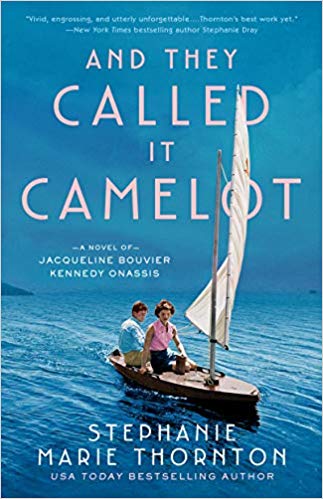 And They Called It Camelot: A Novel of Jacqueline Bouvier Kennedy Onassis by
And They Called It Camelot: A Novel of Jacqueline Bouvier Kennedy Onassis by